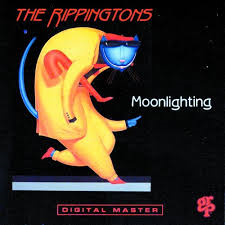
Moonlighting is the debut album by the contemporary jazz ensemble the Rippingtons. It was released in 1986 on Passport Jazz and GRP labels, and reached number 5 on Billboard's Jazz chart.
This is also the first appearance of the Jazz Cat on the album cover by artist Bill Mayer. The Jazz Cat has since been on the cover of every Rippingtons album.
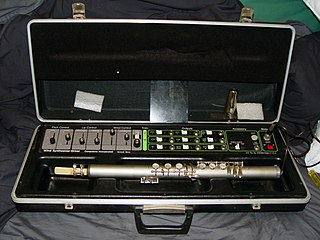
The Lyricon is an electronic wind instrument, the first wind controller to be constructed.

He Who Rides the Tiger is the 1980 second solo album by longtime Elton John lyricist, Bernie Taupin. It is his follow-up effort following his 1971 spoken word album Taupin. Taupin co-wrote all the songs in the album with the Buckinghams former guitarist Dennis Tufano and sang lead vocals in all of them. Although the album was recorded during a time when John and Taupin had interrupted their collaboration, John lent backing vocals on "Love ". The album was re-released on CD by American Beat Records on March 10, 2009.

Masahiro Andō is a Japanese composer and guitarist from Chikusa-ku, Nagoya, Aichi Prefecture, Japan. From 1976 to 2021, he was the guitarist and leader of the Japanese jazz-fusion band T-Square. He was also one-third of Ottottrio, a supergroup led by three Japanese guitarists: himself, Hirokuni Korekata of Rocket Jam and Issei Noro of Casiopea.

Directstep is the twentieth studio album by jazz pianist Herbie Hancock. The record was released exclusively in Japan on January 21, 1979, via the Japanese CBS/Sony label. Participating musicians include saxophonist Bennie Maupin, keyboardist Webster Lewis, bass guitarist Paul Jackson, guitarist Ray Obiedo, percussionist Bill Summers, and drummer Alphonse Mouzon.

T-Square, stylized in all-uppercase T-SQUARE, is a Japanese jazz fusion band formed in 1976. They became famous in the late 1970s and early 1980s along with other Japanese jazz bands. They are known for songs such as "Truth", "Japanese Soul Brothers", "Takarajima", and "Omens of Love", among others.
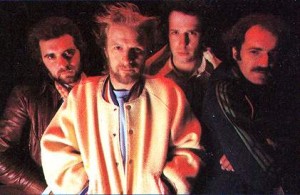
Aviator is an English rock band formed in 1978.

Lucky Summer Lady is the debut studio album by the Japanese jazz fusion group T-Square, who were then known as The Square. It was released on September 21, 1978.
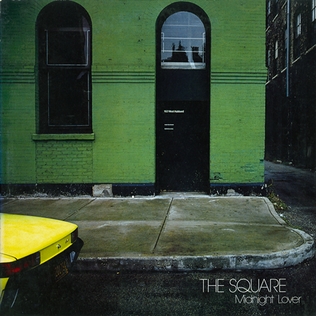
Midnight Lover is the second studio album of the Japanese jazz fusion group T-Square, who were then known as The Square. It was released on December 21, 1978.
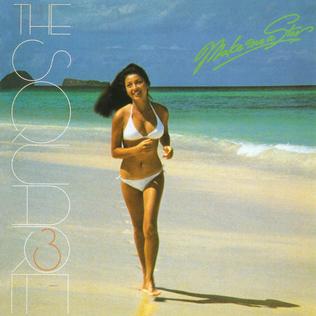
Make Me A Star is the third album by Japanese jazz fusion band "The Square", recorded and released in 1979. This is also the first album on which saxophonist Takeshi Itoh used the Lyricon.

Farewell and Welcome Live 1998 is a live recording by the Japanese Jazz fusion band T-Square released on July 18, 1998 and made available on VHS. The concert was held to bid farewell to Masato Honda and Hirotaka Izumi who were leaving the band, and to welcome their replacements Takahiro Miyazaki and Tadashi Namba.
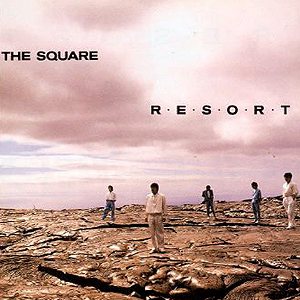
R.E.S.O.R.T. is the tenth studio album by Japanese Jazz fusion band T-Square, who was then called The Square. It was released on April 1, 1985 under Columbia Records. This was the last studio album with drummer Tohru Hasebe, who would leave the band after the tour. Hiroyuki Noritake would replace him in the next album. The album has also been released on Laserdisc.
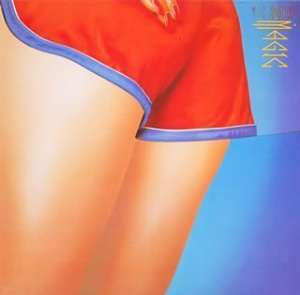
Magic is the fifth studio album by Japanese Jazz fusion band T-Square, who were then known as The Square. It was released on November 1, 1981.

Temptation of Shapely Legs is the sixth studio album by Japanese jazz fusion band T-Square, who was then known as The Square. It was released on November 21, 1982. This is also the first T-Square album to have a Japanese name, whereas the previous names were in English.

Adventures is the eighth studio album by Japanese jazz fusion band T-Square, then known as The Square. It was released on April 1, 1984.

Yes, No is the thirteenth studio album by Japanese Jazz fusion band T-Square. It was released on February 26, 1988 through Columbia Records and was the last studio album by the band released under the name The Square, though by this point they were already Touring the United States as T-Square.

Natural is the fifteenth studio album by Japanese Jazz fusion band T-Square. It was released on April 21, 1990. It was the last to feature Takeshi Itoh on saxophone and EWI, during his initial run with the band. He returned to T-Square in mid-2000 and has been performing with the group ever since.

Masato Honda, is a Japanese saxophone player, composer, and multi-instrumentalist. Born in Nakamura City, Kochi Prefecture, he graduated from Kunitachi College of Music. He is most well known for being a member of the band T-Square and appearing on Cowboy Bebop's soundtrack with The Seatbelts.
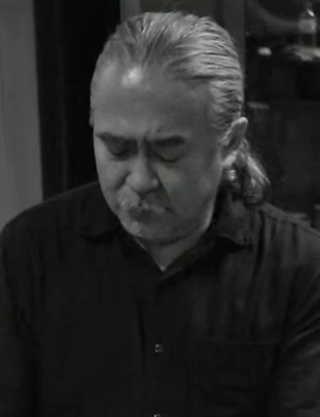
Hirotaka Izumi was a Japanese keyboardist, pianist, and composer who was a former member of the jazz fusion band T-Square. Besides T-Square, he was also active in the bands Pyramid (ピラミッド) and Voyage (ヴォヤージュ).

For You is the sixth studio album by Japanese singer-songwriter Tatsuro Yamashita, released in January 1982.




















